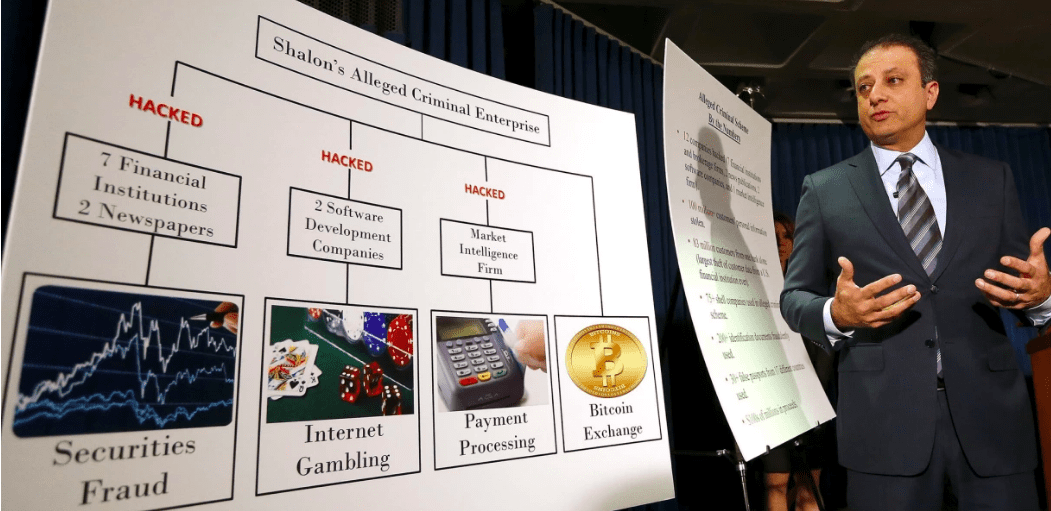Investigations reveal a pattern of Israeli officials stone-walling efforts to stop the perpetrators of massive financial swindles in various countries, from Europe to the US to the Philippines… While some Israeli reporters work to expose the scams, a new one is already underway
By Alison Weir French and Israeli media report that a group largely made up of Israelis scammed 3,000 French citizens out of approximately $20 million. Most of the stolen money is in Israel, but Israeli authorities are reportedly failing to cooperate with France in prosecuting the scammers and retrieving the money. This is the latest of numerous examples of Israeli officials stone-walling international efforts against the perpetrators of massive financial swindles around the world, according to Israeli investigative journalists and others. These scams have brought estimated billions into the Israeli economy, propping up a regime widely condemned for human rights abuses and ethnic cleansing against indigenous Palestinians. Together, the stories paint a picture of a government that seems to be turning a blind eye to – and even protecting – scammers. A Finance Magnates analysis reports that one of the swindles alone has brought in over a billion dollars and employs 5,000 people. And a new scam, described below, may help what is predicted to be “the next major driver of the Israeli economy.”
A former IRS expert on international crime notes that “fraudulent industries are often major economic drivers, and that can translate into political clout.”
Some Israeli journalists have been working to expose the situation in Israeli newspapers, publishing exposés like “As Israel turns blind eye to vast binary options fraud, French investigators step in” and “Are French Jewish criminals using Israel as a get-out-of-jail card?” (Short answer: yes.)
Victimizing French business owners & churches
The victims of the recent scam against French citizens included churches and the owners of small businesses – delicatessens, car repair shops, hair salons, plumbers, etc. Some lost their life savings and describe being threatened and intimidated by the scammers.

The masterminds of the scam reportedly were Antoine Ilan Frau (aka Ilan Frau) and Michael Nedjar, both of whom resided in Israel at the time. French police arrested the two at the Paris airport in 2016 as they were about to return to Israel. While they and 25 others were subsequently found guilty in a French court, other alleged co-conspirators have not yet been arrested and are believed to be in Israel.
The Times of Israel (TOI) reports that most of the money was channeled to Israel and has not yet been recovered. The newspaper reports that Israeli law enforcement authorities “have been unhelpful in enabling further investigation of the scam and in recovering the stolen funds.”
TOI, which obtained the full French verdict statement, reports: “In 200 pages of matter-of-fact legal prose, the verdict paints a picture of Israeli authorities unwilling to cooperate with their French counterparts.”
Another Times of Israel article reports: “The exact number of French citizens thought to be evading authorities in Israel is unknown, but France has sent to Israel at least 70 formal requests for judicial assistance with cases involving suspected fraud by dual nationals residing in the Jewish state.”
Below are some of the other Israeli-connected scams victimizing people around the world that observers accuse the Israeli government of largely ignoring.
Gilbert Chikli, “the world’s greatest con artist”
In 2016 Ha’aretz reported on an Israeli con artist named Gilbert Chikli, who boasts of pioneering a multi-million dollar scam that also targeted people in France. The New York Post has called him “the world’s greatest con artist.”
The scam targeted banks and business, cost French companies an estimated 7.9 million euros. Approximately 52 employees of the companies taken in by him were subsequently fired.
Despite French extradition requests, Ha’aretz reported in 2016 that Chikli “mysteriously remains a free man, living in luxury in his villa in a seaside Israeli city as French authorities try to bring him to justice over a massive con for which he was previously convicted.”
Although a French court sentenced Chikli to a seven-year prison sentence, Ha’aretz reported that instead of being incarcerated, Chikli was “hanging out at his private swimming pool.” Israeli officials refused to explain why Chikli was allowed to live freely in Israel.

Far from disputing the French conviction, Chikli bragged on Israeli TV about his technique: “You get off on it. Because you’re 5,000 kilometers from Paris with a telephone and a 100-euro calling card and you can make 10 million euros” [over $11 million].
Chikli boasted that he had a good life in Israel, where he dealt in real estate (in addition, it appears, to continuing his scams). He also made an estimated several thousand euros for “consultancy services” to a director who made a film based on Chikli’s story.
The film generated unprecedented attention in France, as it depicted “an Israeli-French underworld out of reach of French authorities,” in the words of TOI, “because of the complications in extraditing suspects from Israel.”
Chikli remained free in Israel from 2009 until he traveled to the Ukraine in 2017, where he and another Israeli (also wanted by French authorities) were finally arrested, and Chikli was extradited to France. He was jailed and indicted for an additional scam perpetrated while he was at large.
A French report states that during his time in Ukrainian detention, Chikli was “filmed drinking vodka in his cell, toasting his wealth, swearing never to return to France, and abusing the French judicial system.” (See below)
Binary Options brings in $10 billion/year to Israel
Another international scam is Israel’s notorious binary options industry, which has brought in $10 billion a year. While the Israeli legislature made it illegal to sell the fraudulent options to Israelis, the Israeli legislature only belatedly (and partially) began to crack down on sales abroad. Millions of people around the world have been victimized by the scam, some committing suicide as a result.
An investigative report on the industry was aired on the French prime-time television magazine “Envoyé Spécial” in 2016: “La ruine à portée de clic” (“Financial ruin at the click of a mouse”). According to the report, tens of thousands of French citizens had been victimized by binary options and similar frauds.
The TV report calls Israel a “safe house” for fraudsters and shows undercover video of one of the Israeli call centers. Young French speakers — many of them new immigrants to Israel — are seen calling people in France and Europe, persuading them to “invest” in the scam. As they work to dupe people, the video shows employees dancing and laughing. When a bell rings announcing that they’ve succeeded and someone has given them money, they cheer.
Deborah Abitbol, a French-Israeli lawyer who acts on behalf of French forex and binary options victims, says that Israeli police “could raid these companies tomorrow if they wanted to… They could easily locate them and confiscate their computers.”
Abitbol points out: “These are the savings of people’s entire lives that are lost, gone with a click of a mouse. When you don’t have money left, the damage is irreparable.”
While Israeli law enforcement has sometimes gone after scammers, most often it seems to have left them alone.
A 2015 Israeli position paper by the Israel Securities Authority stated: “Our position is that a platform that solicits customers solely outside of Israel, and does not allow access to customers in Israel is not subject to the law, even if it is fully or partially run from Israel.”
Numerous people in Israel and abroad called for Israel to crack down on the call centers, but for years little was done. TOI reported that a senior Israeli police superintendent said that Israeli crime kingpins were behind the binary options industry and that “organized crime in the country had been massively enriched and strengthened.”
The scam caused ruin to people throughout the world, some committing suicide after their losses.

Finally, Israeli legislation against swindling people in other countries was finally proposed when the Israeli government became sufficiently worried that the scam was hurting Israel’s image abroad.
Notes on behalf of the proposed legislation warned that Israeli binary option companies risked damaging the country’s reputation and “could foment anti-Semitism.” The Israeli Knesset member who introduced the bill said: “We worry about the BDS movement. This industry has a huge impact on how Israel is viewed throughout the world.”
The Times of Israel reported that the legislation was catalyzed by an outcry “among overseas law enforcement agencies, with the FBI at the forefront, that Israel was allowing this ‘monstrous’ fraud to flourish year after year.”
Even that law, however, was watered down and seemed to leave the door wide open for continued swindles. Some charged that it would allow scammers to simply relocate and/or move into similar scams. The concern was merited.
A 2018 TOI article reports: “In the absence of effective law enforcement, Israel’s boiler room industries have proven resilient. Many have simply changed their product before or since the Knesset banned binary options and continued with business as usual.”
In June 2018 Israeli-operated boiler rooms in Asia and Eastern Europe were raided by local police. According to TOI, it was “one of hundreds of Israeli-run boiler rooms operating worldwide in a global plague that, to the mounting dismay and incomprehension of international law enforcement bodies, is being left unchecked by Israeli law enforcement.”
TOI reports: “Israeli law enforcement has yet to indict a single operative from an industry that has stolen billions.”


In absence of Israeli action, FBI steps in
Finally, the FBI announced in September 2017 that the U.S. was going to start going after binary options scammers. FBI agents arrested an Israeli CEO when she landed at JFK airport. The woman, Lee Elbaz of Yukom Communications, currently awaits trial in the U.S. for operations that are believed to have victimized thousands of people. The Israeli police refused to answer TOI‘s questions about where Israeli law enforcement had been during the years that these actions had been perpetrated. A few months later the FBI pursued additional suspects in Israel. An Israeli lawyer who represents victims of binary options fraud said that the FBI raids were “a direct result of Israel’s failure to enforce the law.” The attorney told TOI that he had been trying for years to alert Israeli law enforcement to financial frauds, with no result:
“I provided the police with the names of the Israeli companies that are behind the binary options websites, the addresses in Israel of their offices, and the names of the Israelis behind these companies. At least once, I gave the police the phone number of a former employee who was willing to give evidence, and another time I gave the police concrete information on one of the main issues that the FBI is now investigating. As far as I know, the police have done nothing with all these complaints and information.”
In January FBI agents raided at least one Israeli company and questioned the owner of some other Israeli companies that are accused of targeting Americans. No further arrests seem to have yet been made. While the Bureau would not comment on the raids, a former senior FBI official told TOI that transnational organized crime networks are attracted to Israel because “they identify corruption and lax law enforcement.”
Israeli “Nigerian” scams
Some of the often inaccurately termed “Nigerian” scams have also been connected to Israel.
In 2010 seven Israelis were charged with scamming tens of millions of dollars from U.S. pensioners in a so-called “Nigerian scam,” according to Ha’aretz. Eventually, 12 Israelis were charged in the scheme to swindle elderly Americans.

The Israelis were extradited to the U.S., where the prosecutor described them as “a predatory group that targeted elderly people in the U.S., conning them into believing they were lottery winners. Preying on their victims’ dreams of financial comfort, [they] bilked them out of substantial portions of their life savings.”
According to the U.S. Attorney’s office:
“The defendants operated multiple boiler rooms that used the names of various sham law firms purportedly located in New York, including law firms named ‘Abrahams Kline,’ ‘Bernstein Schwartz,’ ‘Steiner, Van Allen, and Colt,’ ‘Bloomberg and Associates,” and ‘Meyer Stevens.’ The defendants further used various aliases and call forwarding telephone numbers to mask the fact that the defendants were located in Israel. The defendants also possessed bank accounts in Israel, Cyprus, and Uganda, to which illegal proceeds were wired.”
The ringleaders, Avi Ayache and Yaron Bar, were eventually convicted, and the U.S. prosecutor announced that they would “spend a substantial portion of their lives in prison.” Ayache was sentenced in 2014 to 13 years in prison and Bar to 12. Yet, prison records indicate the two were released the next year. Other members of the ring also appear to have been released after extraordinarily little time. If these men did serve only a tiny portion of their U.S. sentences, as public records and phone calls and emails to the Bureau of Prisons indicate, this may be due to the fact that Israelis are allowed to be imprisoned in Israel instead of in the U.S. Their sentences then are determined by Israel and, as we will see below, are often far shorter than they would be in the U.S.
Gery Shalon – hundreds of millions of dollars
In 2015 Gery Shalon and two other Israelis were charged with utilizing hacked data for 100 million people to spam them with “pump and dump” penny stocks, netting hundreds of millions of dollars.
The money was then laundered through an illegal bitcoin exchange allegedly owned by Shalon (more on bitcoin below). Shalon was considered the ringleader of what U.S. prosecutors called a “sprawling criminal enterprise.” He faced decades behind bars.
However, he was instead given a plea deal in which he escaped any prison sentence whatsoever. Worth $2 billion, Shalon was to pay a $403 million fine.

Dov Engel – $115 million swindle
Israel has a history of shielding Israelis charged with crimes against Americans from U.S. penalties. Even when fraudsters are extradited to the U.S. and convicted of major crimes, they sometimes serve little time in prison.
In 2001 a Brooklyn businessman named Dov Engel fled to Israel in the face of criminal charges for a $115 million bank swindle that carried a potential sentence of 30 years in prison.
He was eventually extradited to the U.S., where Assistant U.S. Attorney Daniel Alonso called Engel’s scam “one of the most thoroughly corrupt operations I’ve seen as a white-collar crime prosecutor.”
A New York court convicted Engel of the charges, but he was not imprisoned in the U.S. because Israeli citizens were allowed to serve prison terms in Israel – under Israeli sentencing guidelines. This meant that Engel would only serve five years, at most, in prison; and Alonso predicted it would most likely be about two years. (Information doesn’t appear to be available about how much time Engel ended up serving in prison in Israel, if any.)
Engel was one of the first criminals to be extradited to the U.S. from Israel.
Before that time, Israel had often refused to extradite Americans who had fled to Israel to escape diverse criminal charges, including the dismemberment slaying of an American teen. Even in recent years, Israelis are often not extradited to the U.S. and other countries. In some cases, U.S. law enforcement officials don’t even bother to pursue this option.
Most recently, the Israeli who perpetrated 2,000 bomb threat hoaxes was tried in Israel instead of in the United States – even though most of his threats were against Americans, he held U.S. dual citizenship, and the FBI had been instrumental in finding him.
In the U.S. he would have potentially faced many decades in prison. While an Israeli court found the perpetrator, Michael Kadar, guilty in June 2018, there is no record that he has yet been sentenced. Kadar’s actions are reported to have earned him millions of shekels that he kept in a secret bitcoin account.
On to (non-existent) diamonds
In January, not long after Israel’s legislation against binary options, TOI published an exposé entitled: “Diamonds are a scammer’s best friend: Undeterred by the new binary options ban, Israel’s boiler rooms are doing brisk business. An ex-employee describes how his company shifted to hawking diamonds.”
It turns out that Israeli scammers were now “selling diamonds online and over the phone with promises of a healthy profit, though the promised profits, and even the existence of the stones themselves, are often a matter of conjecture.”
The article reports that this had become “an Israeli cottage industry, mainly involving French speakers.” France’s financial markets regulator, the Autorité des Marchés Financiers (AMF), blacklists about 80 diamond-sales websites, and it is believed that many have links to Israel.

One former binary options employee said the company he worked for had simply removed the old logo and replaced it with one for a diamond investment: “The offices, staff, computers all stayed in place.”
Once again, Israeli law enforcement seems lax. The employee said that his manager told salespeople: “We are accustomed to the Israeli justice system, and we know how to proceed.”
As successful as the diamond racket was, there were quickly plans to branch out to an even more lucrative racket. People interviewing for jobs at the company were told that while the diamond scam would continue for awhile longer, it was on its way out. The company had begun selling a new product: bitcoin.
Bitcoin: “The Next Big thing”

A June 2018 TOI article reports that experts have been touting cryptocurrency and blockchain as “the next major driver of the Israeli economy.”
This would be a highly questionable driver. As TOI reports, “It is unclear how much of the activity in this new high-tech field is legitimate, how much is mere hype, and how much is outright fraud perpetrated by malevolent actors, including transnational criminal organizations.”
In December, the Jewish Telegraphic Agency (JTA) published an article announcing: “Bitcoin Fraud Could Be the Next Big Thing for Swindlers in Israel.” The article, published in Israel’s Jerusalem Post, reported: “According to fraud experts, Israel is shaping up to be a hub for cryptocurrency swindling.”
“Fraudsters,” JTA said, “have begun to take advantage of a cryptocurrency bonanza with a variety of nefarious schemes.”
A former IRS special agent who focused on international fraud predicts that this will mushroom and that Israeli binary options swindlers will spearhead a “massive cryptocurrency fraud.”

An Israeli expert who helps victims of financial scams says: “More or less every binary options company we know of now has a cryptocurrency platform as well. I’m already getting calls from victims, but most people have yet to even realize they’ve been defrauded.”
An Israeli analyst on threat intelligence reports that “not a day goes by without our hearing about a new ICO [initial coin offering] scam or mining attack.” On November 8th, Ha’aretz reported: “Despite complaints to the authorities, users haven’t been warned about cybercriminals who swindle sellers of bitcoin using popular payment apps.”
According to Tel Aviv University Economics professor Neil Gandal, “It’s possible for a small number of actors to manipulate things,” TOI reports. Gandel says that Bitcoin’s first major price spike was likely caused by a single person, and a recent University of Texas paper found that Bitcoin’s more recent price spike was also caused by price manipulation.
TOI reports: “Thousands of Israeli binary options operatives have been looking for new work, and the cryptocurrency field, with its lack of regulation, potential for easy money and libertarian ethos, is a magnet for such individuals.”
According to TOI, “Experts estimate that there are more than 100 fraudulent forex, CFDs, cryptocurrency, insurance, locksmith and Green Card lottery boiler rooms in the country.”
There have been massive demonstrations in Israel against corruption at high levels of government, and two police probes have targeted Prime Minister Netanyahu. A reformer warned of “a foul tsunami rising up in an ocean of corruption that threatens to drown the state of Israel. This is organized crime; crime families and Israeli mafia who are gaining control of local government and from there gradually taking over the central government and the nerve centers of Israeli society.”
In December, the Israeli legislature proposed regulation to ban companies trading in bitcoin from operating on the Tel Aviv stock exchange, suggesting that Israeli citizens will eventually be protected from the scam, as they were from binary options swindlers.
However, It is not known when or if Israel will take action against Israeli cryptocurrency scams that target people in other countries.
For now, events create an impression that the Israeli government is tolerating, and thus perhaps even tacitly encouraging, financial swindles that originate within its borders and devastate individual savings and lives around the world.
The fact that the U.S. government gives Israel over $10 million per day, and that this is about to go even higher, doesn’t seem to protect Americans from being targeted by Israeli financial rackets.
For how much longer?
Alison Weir is the executive director of If Americans Knew and author of Against Our Better Judgment: The hidden history of how the U.S. was used to create Israel. She is also president of the Council for the National Interest.
Our operations are funded solely by generous individuals like you. Your contribution will help us continue shining a light on the Israel/Palestine situation and the U.S. connection.
DONATEVIDEO: Media briefing with PNP Chief Police Director General Oscar Albayalde on Anti-Cybercrime Group accomplishment
Posted by Philippine National Police on Thursday, June 7, 2018
Photos of some of the Israelis said to have scammed people from the call center:








